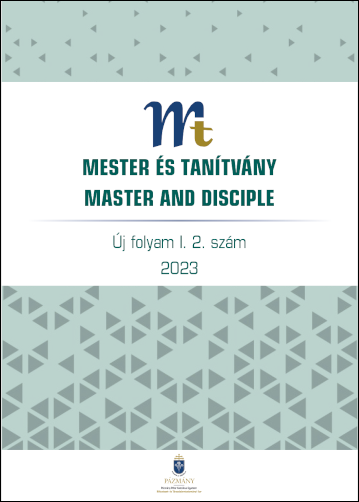Compass to History and Civic Education: Comparative Research of Content Regulation in Europe and Asia
Published 31-12-2023
Keywords
- history education,
- history didactics,
- civic education,
- comparative analysis,
- continental model of development
Copyright (c) 2023 Richárd Fodor, Judit Tóth, András Máté

This work is licensed under a Creative Commons Attribution 4.0 International License.
Abstract
The paper introduces the first results of an ongoing comparative research in the field of education science. Our research group at Mathias Corvinus Collegium Learning Institute was established to conduct a set of exploratory analyses comparing the position of history and civic education in Europe and several Asian countries. The research started with the establishment of the Comparative Framework of History and Civic Education (CFHCE) which is a set of analytical indicators targeting the national content regulatory systems of the reviewed countries in a holistic way. It concentrates on the national curricula, school leaving examination, declared competences, developmental aims and prescribed content of history.
The paper also examines the theoretical research concerning historical thinking. The first results of our research show a complex synthesised model of historical thinking. The first version of the model contains aspects of skills, knowledge, perspectives, methods and online interfaces of historical thinking. Among the components of historical thinking summarised on the basis of the international discourse of history didactics, our research group suggests a new element: development of information and media literacy.
References
- Duquette, C. (2015). Relating Historical Consciousness to Historical Thinking Through Assessment. In Ercikan, K. & Seixas, P. (eds.), New Directions in Assessing Historical Thinking. (pp. 51-63). Routledge.
- Fischerné Dárdai Á. (2010). Történelemtanítás Magyarországon a XXI. század elején (Helyzetkép és perspektíva). Történelemtanítás, Online történelemdidaktikai folyóirat (45.), Új folyam, 1(1).
- Fodor Richárd (2024) Európai körkép a történelemtanításról. Új Pedagógiai Szemle [in press].
- Kaposi, J. (2017). A történelmi gondolkodás és a képességfejlesztő feladatok. Történelemtanítás, Online történelemdidaktikai folyóirat (52.), Új folyam, 8(1-2).
- Khanina, A. & Zimovets, A. & Maksimenko, T. (2021). The Role of Media and Information Literacy during COVID-19 Pandemic and Post-Pandemic Period. International Journal of Media and Information Literacy. 6(1), 111-118.
- Kojanitz, L. (2017). A történelmi gondolkodás fejlesztése az Újgenerációs tankönyvekkel. Történelemtanítás, Online történelemdidaktikai folyóirat (52.), Új folyam, 8(3-4).
- Majkić, M. (2022). Történelemre vonatkozó episztemológiai nézetek kontextussal összefüggő jellemzőinek vizsgálata 11. és 12. évfolyamon [Doktori disszertáció]. Szegedi Tudományegyetem.
- Rozendal, U. D. & Van Boxtel, C. (2022). Illuminating historical causal reasoning: Designing a theory- informed cognition model for assessment purposes. Historical Encounters, 10(1), 60-75.
- Observatory on History Education in Europe (2023) OHTE General Report on the State of History Teaching in Europe Volume 1. Comparative Analysis. https://rm.coe.int/ohte-general-report-full-web/1680ad80c2
- Seixas, P. & Morton, T. (2013). The Big Six. Historical Thinking Concepts. Nelson Education.
- Sipos A. M. (2014). Az információs műveltség fogalom biblio- és tudománymetriai vizsgálata. In Csóka-Jaksa H. & Schemelczer-Pohánka É. & Szeberényi G. (szerk.), Pedagódai - Oktatás - Könyvtár. Ünnepi tanulmányok F. Dárdai Ágnes tiszteletére. (pp. 383- 398). PTE, Pécs.
- Smith, Mark D. (2017). Cognitive Validity: Can Multiple Choice Items Tap Historical Thinking Processes? American Educational Research Journal. 54(6), 1256-1287.
- T. Mills Kelly (2013). Teaching History in the Digital Age. University of Michigan Press, 14-25.
- Tóth, J. (2023). Történelemtanítás a digitális korban – brüsszeli fórum az Európa Tanács főszervezésében. Történelemtanítás, Online történelemdidaktikai folyóirat (58.), Új folyam, 14(1-2).
- Vajda, Barnabás: Teaching history in Slovakia. In: Fink, Nadine – Furrer, Markus – Gautschi, Peter (eds.): Why History Education? Frankfurt am Main: Wochenschau Verlag, 2023, pp. 138-152. ISBN 978-3-7344-1598-2. https://doi.org/10.46499/1979


